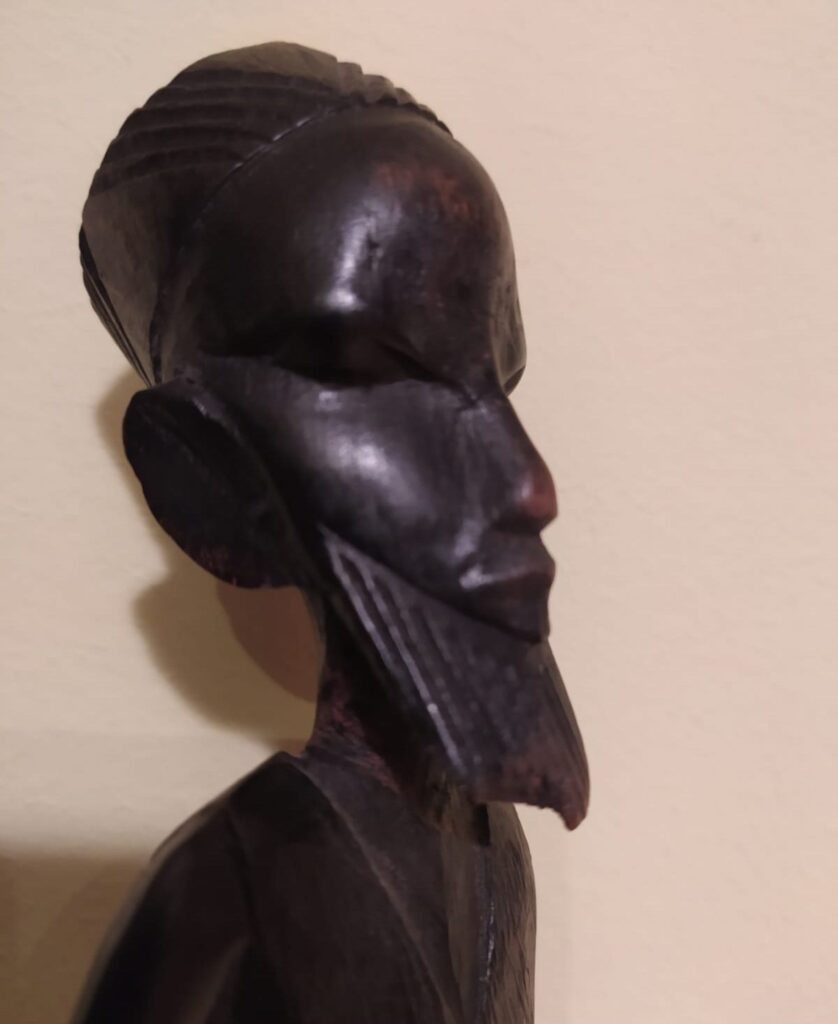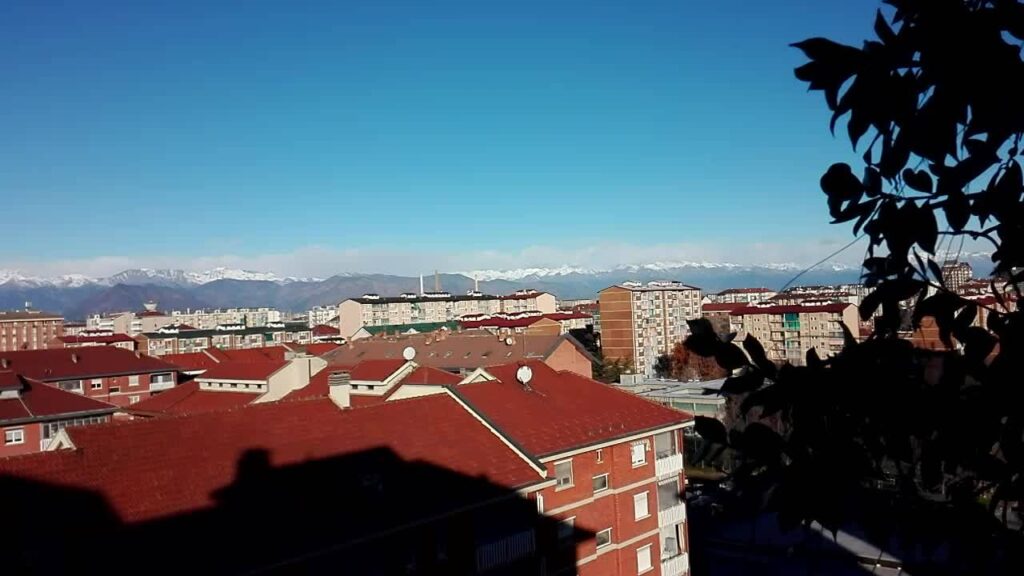African students in Turin during Covid-19
My story, like that of many other friends…
After finishing my course of study, despite my efforts, I was unable to find a stable position. Always precarious jobs, with fixed-term contracts. For some time I also worked as a welder in a mechanical workshop in Turin. I learned the job when I was a boy, from my father in Cameroon.
I was also sent to work in France because I know the language well. But always with fixed-term, underpaid contracts. If I protested, my boss would say to me: “Look, Kamite, these are the contracts for your job and also the salaries… you don’t have to complain. If you don’t want to, there are many others like you who are willing to work for less“. In the end I left.

Surely the fact of being a foreigner, with temporary residence permits does not help. Here in Italy it is very complicated to have citizenship. In addition to long periods of time, you have to prove that you have sufficient income to support yourself and your family.
To foreign students, when we meet, I always say: “You know you have a great opportunity, you can’t waste it. To come here to study, your family makes sacrifices, you have to try hard, because it is not easy“.
Care must be taken not to lose your scholarship. Sometimes it’s true, the money from the scholarship is not enough, so you start looking for a job, to make ends meet, and you neglect your studies. Then it’s a cascade effect: you lose your scholarship, you try to work even harder and you are late for exams. Then you lose university accommodation, if you were entitled to it, and you have to look for accommodation with other students, but the costs increase. Finally, if you are no longer able to follow your studies, you lose your residence permit.
What happened with the covid-19?
With the covid-19 pandemic and especially with the lockdown, things got much worse.
“There has been a lot of talk about distance learning,” says my friend Ibrahim.
“Of course it can work, but you have to have a PC, a workstation with a wi-fi network that works, a quiet environment where you can take lessons.
“Try taking a lesson at the polytechnic in a 50 sq.m. accommodation, where you live in 5, stuck at home. True, you can do it from your mobile phone, but it’s not the same thing: there are slides, work groups”.
“Internet subscriptions and telephone network operators also have costs and many times you have to give priority to other needs, such as eating.

The other issue that has become dramatic is that of work. Many students try to supplement their scholarship or to make a living, when the scholarship is no longer there, with small jobs. At agencies, bars, restaurants. For months these opportunities have disappeared.
Some of them, like Johann, who arrived from Mali a year ago, have been riding their bikes.
“Out in the cold, but you have to pedal, in any weather, with hunger pains. Hold on for a few weeks, then you get sick and lose your contract“. Some even came to the association’s health clinic, until it was opened, then that one closed too, because of the problems related to the covid.
A fairly lucrative occupation, which does not compromise the lessons, is to be a steward in the Juve or Toro stadiums, or during commercial events. Usually you work on Saturdays and Sundays or for a limited period of days. These activities have also been blocked for months.
In short, for many students, but also for me, your income opportunities have become increasingly limited and you are not entitled to the forms of income support provided for by the state, because you are a foreigner and, sometimes, with an expired residence permit.
In these months of lockdown, in particular, we have increased the distribution of food at home for groups of students. For many it has been a fundamental help, at least to eat a decent meal once a day.
I know of some students who, with the help of their families, have returned to their country. Of course it’s a defeat, but sometimes you can’t take it anymore.
This lack of income for most of 2020 and perhaps even 2021, since the crisis does not seem to be over, also has repercussions on the integration project in Italy. Obtaining citizenship is not only linked to the years you stay in Italy, but you also have to prove that you have a sufficient income for you and your family.
In my case, even before the pandemic, I could only guarantee access to citizenship for myself and a child, but now, with the 2020 crisis, my path is probably interrupted and I will have to start again.
Another lockdown problem has been that of being stuck at home for months.
There are four of us, in an accommodation of about 60 sqm on the third floor. They are houses of the sixties, with thin walls and slabs and you can hear everything. With the youngest child it was very difficult to stay at home all day long, you can’t watch TV all day long. So you make up games, try to distract him, but the neighbours complain: “Stop making all this racket! We’re in this house too… maybe you can go back to where you came from”.
They are the ones downstairs, an Italian couple with their older children. For the first few days, every time they complained, I tried to stop my son, but then I thought “Is it possible I have to make my son hate me, just because the neighbours can’t stand a bit of noise? And not at midnight, but in broad daylight”.
So I tried to explain it: “I’m sorry but the youngest is only a toddler, we can’t keep him tied up all day. I too, when the tenants upstairs had small children, I endured a bit of noise. My wife used to tell me to go upstairs and protest, that you couldn’t sleep, but I always preferred not to have problems with the neighbours”.
But this time it wasn’t possible, even after the explanations continued to protest, so we haven’t spoken to each other for a few months. I’m sorry.

What will I do?
After the end of the lockdown I managed to enter the Amazon distribution centre in Torrazza, near Turin. Between travel and work I stay away from home even 12 hours, from Thursday to Sunday, but at least I have a fixed income.
Let’s hope they don’t block everything again, that they at least let us go to work.
I will do my best to have Italian citizenship for me and my family. If we make it, we will probably move to France, where the situation seems more liveable. The conditions are also more favourable for the children, with income and financial support for services: nurseries, kindergartens, primary school books.
Italians have emigrated halfway around the world, many Turinese arrived from the southern regions in the sixties, but perhaps they do not remember when they meet us in the street.
Kamite
Turin, October 2020
Studenti africani a Torino durante il Covid-19
La mia storia, come quella di molti altri amici…
Dopo aver terminato il mio corso di studi, nonostante l’impegno, non sono riuscito a trovare una collocazione stabile. Sempre lavori precari, con contratti a termine. Per un certo periodo ho fatto anche il saldatore, in un’officina meccanica di Torino. Il mestiere l’avevo imparato quando ero ragazzo, da mio padre, in Camerun.
Mi mandavano anche a lavorare in Francia, proprio perché conosco bene la lingua. Sempre però con contratti a termine, sottopagati. Se protestavo il mio capo mi diceva: “Ma guarda, Kamite, che sono questi i contratti della tua mansione e anche gli stipendi… non ti devi lamentare. Se non ti va ci sono tanti altri come te disposti a lavorare anche per meno”. Alla fine me ne sono andato.
Sicuramente il fatto di essere straniero, con permessi di soggiorno a termine non aiuta. Qui in Italia è molto complicato avere la cittadinanza. Oltre ai tempi lunghi, devi dimostrare di avere un reddito sufficiente a garantire il mantenimento tuo e della tua famiglia.
Agli studenti stranieri, quando ci incontriamo, dico sempre: “Lo sai che hai una grande opportunità, non la puoi sprecare. Per farti venire a studiare qui la tua famiglia fa dei sacrifici, devi mettercela tutta, perché non è facile”.
Bisogna fare attenzione a non perdere la borsa di studio. A volte è vero, i soldi della borsa non bastano, così cominci a cercare un lavoretto, per arrotondare, e trascuri lo studio. Poi è un effetto a cascata: perdi la borsa, cerchi di lavorare ancora di più e resti in ritardo con gli esami. Poi perdi l’alloggio universitario, se ne avevi diritto, e devi cercarti una sistemazione con altri studenti, ma le spese aumentano. Infine, se non riesci più a seguire gli studi, perdi pure il permesso di soggiorno.
Cosa è successo con il covid-19?
Con la pandemia di covid-19 e soprattutto con il lockdown le cose sono molto peggiorate.
“Si è fatto un gran parlare dell’insegnamento a distanza” racconta il mio amico Ibrahim. “Certo può funzionare, ma devi avere un PC, una postazione con una rete wi-fi che funzioni, un ambiente tranquillo dove seguire le lezioni”.
“Prova a seguire una lezione del politecnico in un alloggio di 50 mq, in cui si vive in 5, bloccati a casa. È vero, puoi farlo dal cellulare, ma non è la stessa cosa: ci sono le slide, i gruppi di lavoro”.
“Anche gli abbonamenti a internet e ai gestori di reti telefoniche hanno dei costi e molte volte devi dare la priorità ad altri bisogni, come il mangiare”.
L’altra questione che è diventata drammatica è quella del lavoro. Molti studenti cercano di arrotondare la borsa o di campare, quando la borsa non c’è più, con dei piccoli lavoretti. Presso agenzie, bar, ristoranti. Per mesi queste opportunità sono sparite.
Alcuni, come Johann, arrivato da un anno dal Mali, si sono messi a fare i riders, con la bicicletta.
“Fuori al freddo, ma devi pedalare, con qualsiasi tempo, con guadagni da fame. Reggi qualche settimana, poi ti ammali e perdi il contratto”. Alcuni sono arrivati anche all’ambulatorio sanitario dell’associazione, finché è stato aperto, poi anche quello ha chiuso, per i problemi legati al covid.
Un’occupazione abbastanza redditizia, che non compromette il seguire le lezioni, è quella di fare lo steward negli stadi della Juve o del Toro, oppure durante le manifestazioni commerciali. Di solito si lavora il sabato e la domenica o per un periodo limitato di giorni. Anche queste attività sono state bloccate per mesi.
Insomma, per molti studenti, ma anche per me, le possibilità di reddito sono diventate sempre più limitate e non hai diritto alle forme di integrazione previste dallo stato, perché sei straniero e, a volte, con il permesso di soggiorno scaduto.
In questi mesi di lockdown, in particolare, abbiamo aumentato la distribuzione di viveri a casa dei gruppi di studenti. Per molti è stato un aiuto fondamentale, almeno per mangiare un pasto decente una volta al giorno.
So di alcuni studenti che, con l’aiuto delle loro famiglie, sono tornati al loro paese. Certo è una sconfitta, ma a volte non ce la fai più a reggere.
Questa mancanza di reddito per gran parte del 2020 e forse anche 2021, visto che la crisi non sembra superata, ha delle ripercussioni anche sul progetto di inserimento in Italia. L’ottenimento della cittadinanza non è solo legato agli anni di permanenza in Italia, ma devi anche dimostrare di avere un reddito sufficiente per te e la famiglia.
Nel mio caso, già prima della pandemia, riuscivo a garantire l’accesso alla cittadinanza solo per me e un figlio, ma ora, con la crisi del 2020, probabilmente il mio percorso si interrompe e dovrò ricominciare da capo.
Un altro problema legato al lockdown è stato quello dell’essere bloccati a casa per mesi.
Noi siamo in quattro, in un alloggio di circa 60 mq. al terzo piano. Sono case degli anni sessanta, con muri e solette sottili e si sente tutto. Con il bimbo più piccolo è stato molto difficile stare a casa delle giornate intere, non puoi guardare la tv tutto il giorno. Allora ti inventi dei giochi, cerchi di distrarlo, ma i vicini si lamentano: “La finite di fare tutto questo baccano! Ci siamo anche noi in questa casa… magari potete tornarvene da dove siete venuti”.
Sono quelli di sotto, una coppia di italiani con i figli già più grandi. Per i primi giorni, ogni volta che si lamentavano, cercavo di fermare mio figlio, ma poi ho pensato “Possibile che debba farmi odiare da mio figlio, solo perché i vicini non sopportano un po’ di rumore? E non a mezzanotte, ma in pieno giorno”.
Così ho cercato di spiegare la cosa: “Mi dispiace ma il più piccolo ha solo tre anni, non possiamo tenerlo legato tutto il giorno. Anch’io, quando gli inquilini di sopra avevano i bambini piccoli, ho sopportato un po’ di baccano. Mia moglie mi diceva di salire e protestare, che non si riusciva a dormire, ma io ho sempre preferito non avere problemi con i vicini”.
Però questa volta non è stato possibile, anche dopo le spiegazioni hanno continuato a protestare, così, da qualche mese, non ci parliamo più. Mi dispiace.
Cosa farò?
Dopo la fine del lockdown sono riuscito ad entrare nel centro di distribuzione di Amazon, a Torrazza, vicino a Torino. Fra viaggio e lavoro sto fuori casa anche 12 ore, dal giovedì alla domenica, ma almeno ho un reddito fisso.
Speriamo non blocchino di nuovo tutto, che ci lascino almeno andare a lavorare.
Farò il possibile per avere la cittadinanza italiana per me e la mia famiglia. Se ce la facciamo, probabilmente, ci sposteremo in Francia, dove la situazione sembra più vivibile. Anche per i figli le condizioni sono più favorevoli, con delle integrazioni del reddito e dei supporti economici per i servizi: nidi, scuole materne, libri per le elementari.
Gli italiani sono emigrati in mezzo mondo, molti torinesi sono arrivati dalle regioni del sud negli anni sessanta, ma forse non se ne ricordano quando ci incontrano per strada.
Le Kamite
Torino, ottobre 2020
![Other Front Line [logo]](https://otherfrontline.org/wp-content/themes/otherfrontline/assets/img/ofl-logo-colour.svg)
